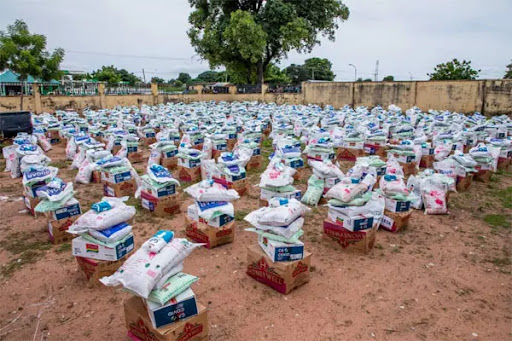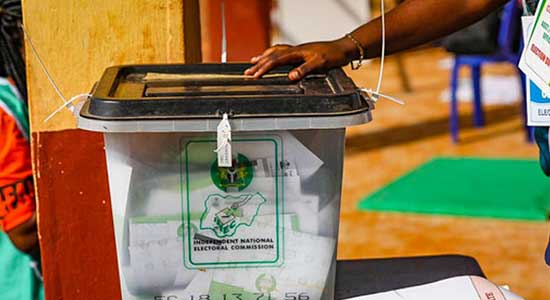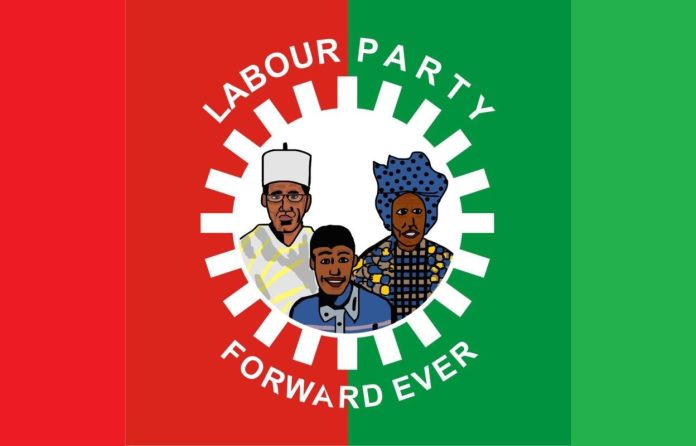In dealing with one of the initial shocks of the fuel subsidy removal in June 2023, many agencies of the Federal Government and a good number of state governments ‘officially’ reduced working days of the week to either three or two days, instead of the normal five. This initiative was a sort of palliative to lighten the burden of civil servants who were faced with an outrageously high and rising cost of transportation, triggered by rise in the pump price of fuel (Premium Motor Spirit, PMS) sequel to fuel subsidy removal by President Bola Ahmed Tinubu administration on 29 May 2023.

However, while the reduction in work days may alleviate the plight of the civil servants, productivity at the state and Federal levels was utterly sacrificed. In other words, the main reason for hiring these civil servants was played down—all culminating in unquantifiable loss of the ‘output’ of these public servants. On the aggregate, nationwide, Nigeria would have lost immeasurably in terms of the productivity that would have added up to the much needed economic growth and development.

Productivity is a measure of economic performance that compares the amount of goods and services produced (output) with the amount of inputs used to produce those goods and services. Productivity is said to increase when more output is produced with the same amount of inputs or when the same amount of output is produced with less inputs. But in the subsisting ‘palliative regime’ in Nigeria, the same number of civil servants is being used to ‘produce’ the same or less services at the Federal and sub-national levels: all because of the adverse impact of government policies.
Ever since the adoption of the two or three days (working) week in June 2023, almost every initiative of the Federal and state governments have principally to do with palliatives. There have been hues of ‘salary awards’, cash transfers and motley in-kind palliatives. It is on record that the Federal Government at a point late last year, announced a dole of five billion Naira to each of the states for an assortment of palliative packages for their citizens. The utilization of this fund got ‘soaked’ in the politics of each of the states; and the governors mainly used their political party ‘network’ to reach out to select beneficiaries.
READ ALSO: This Present Hunger Should Not Be Politicised
Till date, many of the state governments are still contending that they were given only N2 billion and not N5 billion; and that the money was only to be repaid. Howbeit, it remains very doubtful if the right targets (the very vulnerable) got the government’s largesse (palliatives) in most of the states. This is why, over the past months, rather than things getting better, many more Nigerian have been pushed into the poverty trap in the face of sharp increases in the cost of living.
The import of all these has been continuing deterioration of the nation’s social fabric: sharp increases in crimes and criminality, upheavals and skirmishes, youth restiveness, organized protests, etc. All these have combined to heighten socio-economic tension, even as insecurity keeps posing existential threat to all. The polity is now such that government at all levels is contending with a hungry, angry and restive citizenry. The upshot of this reality has been packaging and re-packaging of all manner of palliatives to (perhaps) merely assuage the frayed nerves and ire of the populace across the country.
In the past couple of weeks, there have been public protests in not a few towns and cities in various parts of the country: Kano, Kaduna, Oyo, Ogun, Lagos, Abuja, Edo and Osun states, etc. As the protests keep spreading like wild fire, governments (states and federal) seem yet preoccupied with ‘dousing’ the tension (anger, hunger, poverty) through palliatives. This is perhaps why, instead of expeditiously coming up with a new/improved salary structure (or minimum wage), the Federal government seems more bent of paying ‘cash awards’ and ‘crumbs’ to calm the Organized Labor (OL), as it were.
The upshot of this has been that in the past eight or nine months, the OL has been in an endless dingdong with the Federal government over the form and content of palliatives as well as the new minimum wage.
While these remain open-ended, the Federal government has resorted to giving ‘food palliatives’; under this arrangement, the Tinubu administration, through the Ministry of Agriculture and Food Security, is working on releasing 42,000 metric tonnes of assorted food commodities to support the vulnerable population across the country. As this is ongoing, various state governments in a variety of ways, are institutionalizing the ‘palliatives culture.’ In Lagos state, the commercial hub of the country, for instance, a ‘Special Dispensation Palliative Advisory Committee’ has just been set up.
Chaired by the Governor, with his Deputy as alternate Chairman, the eleven man inter-party panel is to determine the content and variety of palliatives to be put in place by the government, going forward. It will also determine the timing and mode of distribution—to reach the teeming populace. At the Federal level, too, President Tinubu has equally empaneled a tripartite economic advisory committee—essentially to come up with “immediate measures to stabilize the economy.” Made up of representatives from the Federal and state governments as well as the Organized Private Sector (OPS), the panel is to help initiate steps to speedily “bring life back to the economy.”
The situation is not different in other states of the country: it is either the government is buying and distributing foodstuff or buying and deploying buses to ‘ease’ transportation challenges in its domain. These buses are made to charge ‘subsidized’ fares as palliatives for the people. Since June 2023, the Federal government had during festive seasons ensured ‘low fare’ charges by the Nigerian Railway Corporation (NRC) for users of the railways across the country—all in the spirit of palliatives.
Some state governments have so integrated the ‘palliative culture’ into their mode of operation that they rather give crop seedlings (yam, maize, cassava, etc.) to their populace than introduce them to mechanized farming. In point of fact, the seedlings (and in some cases, fertilizer and other inputs) are sold by government (agencies) at subsidized rates—again, as palliatives.
In truth, a panoramic view of all these ‘palliative interventions’ will put to question whatever has been the economic development blueprint of the governments. If there has been any realistic economic roadmap, would palliatives or ad hoc provisions been necessary? Indeed, in the absence of a realistic destination (roadmap), every road (palliatives and doles) just takes Nigeria to somewhere (economically). And that has been its plight for upwards of one year now. At present, the Nigerian economy badly needs direction, stimulation and leapfrogging for a quantum leap. Palliatives will always remain what they are: crumbs!
In dealing with one of the initial shocks of the fuel subsidy removal in June 2023, many agencies of the Federal Government and a good number of state governments ‘officially’ reduced working days of the week to either three or two days, instead of the normal five. This initiative was a sort of palliative to lighten the burden of civil servants who were faced with an outrageously high and rising cost of transportation, triggered by rise in the pump price of fuel (Premium Motor Spirit, PMS) sequel to fuel subsidy removal by President Bola Ahmed Tinubu administration on 29 May 2023.
However, while the reduction in work days may alleviate the plight of the civil servants, productivity at the state and Federal levels was utterly sacrificed. In other words, the main reason for hiring these civil servants was played down—all culminating in unquantifiable loss of the ‘output’ of these public servants. On the aggregate, nationwide, Nigeria would have lost immeasurably in terms of the productivity that would have added up to the much needed economic growth and development.
Productivity is a measure of economic performance that compares the amount of goods and services produced (output) with the amount of inputs used to produce those goods and services. Productivity is said to increase when more output is produced with the same amount of inputs or when the same amount of output is produced with less inputs. But in the subsisting ‘palliative regime’ in Nigeria, the same number of civil servants is being used to ‘produce’ the same or less services at the Federal and sub-national levels: all because of the adverse impact of government policies.
Ever since the adoption of the two or three days (working) week in June 2023, almost every initiative of the Federal and state governments have principally to do with palliatives. There have been hues of ‘salary awards’, cash transfers and motley in-kind palliatives. It is on record that the Federal Government at a point late last year, announced a dole of five billion Naira to each of the states for an assortment of palliative packages for their citizens. The utilization of this fund got ‘soaked’ in the politics of each of the states; and the governors mainly used their political party ‘network’ to reach out to select beneficiaries.
Till date, many of the state governments are still contending that they were given only N2 billion and not N5 billion; and that the money was only to be repaid. Howbeit, it remains very doubtful if the right targets (the very vulnerable) got the government’s largesse (palliatives) in most of the states. This is why, over the past months, rather than things getting better, many more Nigerian have been pushed into the poverty trap in the face of sharp increases in the cost of living.
The import of all these has been continuing deterioration of the nation’s social fabric: sharp increases in crimes and criminality, upheavals and skirmishes, youth restiveness, organized protests, etc. All these have combined to heighten socio-economic tension, even as insecurity keeps posing existential threat to all. The polity is now such that government at all levels is contending with a hungry, angry and restive citizenry. The upshot of this reality has been packaging and re-packaging of all manner of palliatives to (perhaps) merely assuage the frayed nerves and ire of the populace across the country.
In the past couple of weeks, there have been public protests in not a few towns and cities in various parts of the country: Kano, Kaduna, Oyo, Ogun, Lagos, Abuja, Edo and Osun states, etc. As the protests keep spreading like wild fire, governments (states and federal) seem yet preoccupied with ‘dousing’ the tension (anger, hunger, poverty) through palliatives. This is perhaps why, instead of expeditiously coming up with a new/improved salary structure (or minimum wage), the Federal government seems more bent of paying ‘cash awards’ and ‘crumbs’ to calm the Organized Labor (OL), as it were.
The upshot of this has been that in the past eight or nine months, the OL has been in an endless dingdong with the Federal government over the form and content of palliatives as well as the new minimum wage.
While these remain open-ended, the Federal government has resorted to giving ‘food palliatives’; under this arrangement, the Tinubu administration, through the Ministry of Agriculture and Food Security, is working on releasing 42,000 metric tonnes of assorted food commodities to support the vulnerable population across the country. As this is ongoing, various state governments in a variety of ways, are institutionalizing the ‘palliatives culture.’ In Lagos state, the commercial hub of the country, for instance, a ‘Special Dispensation Palliative Advisory Committee’ has just been set up.
Chaired by the Governor, with his Deputy as alternate Chairman, the eleven man inter-party panel is to determine the content and variety of palliatives to be put in place by the government, going forward. It will also determine the timing and mode of distribution—to reach the teeming populace. At the Federal level, too, President Tinubu has equally empaneled a tripartite economic advisory committee—essentially to come up with “immediate measures to stabilize the economy.” Made up of representatives from the Federal and state governments as well as the Organized Private Sector (OPS), the panel is to help initiate steps to speedily “bring life back to the economy.”
The situation is not different in other states of the country: it is either the government is buying and distributing foodstuff or buying and deploying buses to ‘ease’ transportation challenges in its domain. These buses are made to charge ‘subsidized’ fares as palliatives for the people. Since June 2023, the Federal government had during festive seasons ensured ‘low fare’ charges by the Nigerian Railway Corporation (NRC) for users of the railways across the country—all in the spirit of palliatives.
Some state governments have so integrated the ‘palliative culture’ into their mode of operation that they rather give crop seedlings (yam, maize, cassava, etc.) to their populace than introduce them to mechanized farming. In point of fact, the seedlings (and in some cases, fertilizer and other inputs) are sold by government (agencies) at subsidized rates—again, as palliatives.
In truth, a panoramic view of all these ‘palliative interventions’ will put to question whatever has been the economic development blueprint of the governments. If there has been any realistic economic roadmap, would palliatives or ad hoc provisions been necessary? Indeed, in the absence of a realistic destination (roadmap), every road (palliatives and doles) just takes Nigeria to somewhere (economically). And that has been its plight for upwards of one year now. At present, the Nigerian economy badly needs direction, stimulation and leapfrogging for a quantum leap. Palliatives will always remain what they are: crumbs!
Marcel Okeke
obioraokeke2000@yahoo.com




















